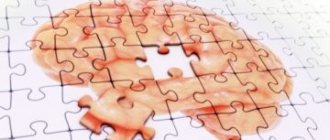Effectively
improvement after 1 session
Fast
from 2 to 5 sessions
Reliable
eliminating the cause of the problem
Price
15,000 ₽ per session
Get a free specialist consultation
Find out how to get rid of your problem forever
Sign up
Post-traumatic stress disorder (PTSD) is a type of anxiety disorder that usually develops after directly participating in or witnessing traumatic events.
Problems to be solved
Customer Reviews
Cost of sessions
Hypnologist, psychologist
What is PTSD?
Of course, feeling fear in the face of a potentially dangerous situation is quite normal.
In fact, this fear is necessary for our survival. It causes reactions in the body that are aimed at saving our lives if there is a threat. The fight or flight response is natural and necessary to protect us. Most people experience a range of symptoms after traumatic events and usually recover shortly after the event. However, for some people these symptoms do not improve. They may feel scared and stressed, and may have flashbacks from the traumatic event even in normal situations. It is when these symptoms persist and begin to interfere with daily life that PTSD can be diagnosed.
Post-traumatic stress disorder is thought to affect one in three people with a traumatic experience. It is not yet clear why some people develop this condition and others do not. PTSD may develop immediately after experiencing a traumatic event or may appear weeks, months, or even years later.
Symptoms of PTSD
In most cases, PTSD symptoms develop within the first month after the event. Although in some cases, symptoms may be delayed for months or years.
Symptoms may also vary from person to person. Some will experience long periods of minor, less noticeable symptoms, followed by periods when they are more severe. Others will have ongoing, severe symptoms that affect their daily life.
While the specific symptoms of PTSD vary from person to person, there are common symptoms associated with PTSD that generally fall into the following categories.
Re-experiencing
The most common symptom of PTSD. Reexperiencing is when a person re-experiences the triggering event. Re-experiencing typically occurs in the form of vivid memories, nightmares, repetitive and disturbing thoughts or sensations, and physical sensations such as pain, sweating, and nausea.
Some people may constantly experience negative thoughts about the event, asking themselves over and over again questions: “Why did this happen to me? How can I stop this?
These repeated questions can prevent them from finding inner peace and coping with the event, often leading to feelings of guilt or shame.
Avoidance and emotional numbness or numbness
Another key symptom of PTSD is an active attempt to avoid any reminders of the trauma. This may mean avoiding certain people or places that remind you of the event, or talking to anyone about the event and everything associated with it.
People with PTSD often ignore memories, repressing them by distracting themselves with other things, such as work.
Other people may try to cope by trying to disconnect from it completely. Not feeling anything sometimes seems like the easier option. This is called emotional numbness. Emotional numbness can cause a person to feel isolated and withdrawn, losing pleasure in things they once enjoyed.
Hyperactivity
PTSD can lead to increased feelings of anxiety and difficulty relaxing. People can be constantly on the lookout for danger and threat. This is known as hyperactivity.
Hyperactivity can lead to increased irritability, trouble sleeping, anger, and difficulty concentrating.
Other problems
PTSD can have a detrimental effect on a person's life. In addition to the symptoms above, people with PTSD may have other symptoms associated with the condition, such as:
- Other mental health problems including anxiety, depression or phobias.
- Physical symptoms including headaches, chest pain, abdominal pain and dizziness.
- Self-destructive or destructive behavior, including drug or alcohol abuse.
Without the right knowledge and support, living with PTSD can become a very lonely experience. In some cases, this can lead to a breakdown in relationships with loved ones and work-related problems.
If you are experiencing problems with PTSD or are worried about a loved one, it is important to seek help early. There are quite a few help centers available for those suffering from PTSD, and while we know it's not easy to seek help, it will make it much easier than going through it alone.
Read reviews about treatment for post-traumatic stress disorder
“I suffered from PTSD for a year, I don’t know how I didn’t sleep well during this time. His wife left, the only friends left were those with whom he was at war. One of them suggested that the Israelis know how to treat this. I found it on the Internet and a week later I was in Israel. I don’t know what helped, maybe the medicine, maybe sessions with a psychotherapist, maybe Israel itself, but it helped, that’s a fact. For the first time in a long time I can sleep. I became calmer, I don’t want to drink anymore. He was treated at Renaissance."
A. A., Krasnodar, Russia.
“My brother had severe post-stress disorder after the accident. He miraculously survived, although he was driving, and his family died, but he found out about this only when he left the hospital, a month later. They were afraid to leave him alone; he did not sleep, did not eat, and died. We looked for solutions on the Internet, read forums, discussions, and found a clinic that undertakes to treat this in Israel. The hardest thing was to persuade my brother. But they helped him there, for which I am very grateful. Before our eyes, the man began to come back to life! I highly recommend it to anyone in a similar situation.”
Ilyasova T. O., Moscow.
What are the causes of PTSD?
PTSD can affect anyone. An anxiety disorder can develop after a frightening, life-threatening or disturbing event or after a prolonged traumatic experience.
Types of events that can lead to PTSD include:
- serious road accidents
- violent acts
- long-term drug or substance abuse
- hostilities
- terrorism
- natural disasters
- witnessing a violent death or unexpected injury or death of a loved one
Do I have PTSD?
PTSD is not just the consequences of psychological trauma. The symptoms of PTSD go beyond the experience. People who experience this syndrome often experience profound personality changes.
At the end of the 19th century, psychologist Openheim proposed the term “traumatic neurosis.” In 1980, the term PTSD was introduced into ICD-10. The syndrome is a mental disorder and has a diagnosis code of F43.1
The causes of PTSD are events that should not happen:
- Wars, concentration camps, participation in hostilities;
- Terrorist attacks, hostage taking, shootings;
- Automobile, air and other accidents;
- Earthquakes, fires, floods and other natural disasters;
- Torture, attacks and other situations in which life and death are involved;
- Sexual violence.
Moreover, PTSD can develop not only if you were a direct participant in such events, but even if you witnessed them.
Who's in danger?
Although it is unclear why some people may develop this condition and others do not, there are certain factors that can affect your chances of developing PTSD. If you have a history of depression or anxiety, you may be more likely to develop PTSD after an accident, according to research.
Other risk factors include lack of social support before or after the traumatic event, childhood trauma, or additional stress after the event (death of a loved one, job loss, etc.).
PTSD can also affect children. They generally experience symptoms similar to adults, but there are some symptoms that are more specific to children, such as bedwetting, separation anxiety, or increased anxiety when they are away from adults or reenacting an event through play.
Treatment of PTSD
The main treatments for PTSD are medication and psychotherapy (talk therapy). Of course, everyone is different and how PTSD affects people will differ, so the treatment that works for one person may not be for you.
Watchful waiting or active surveillance is an approach that may be suggested if you have been experiencing symptoms for less than four weeks or the symptoms are relatively mild. It involves self-monitoring, where you monitor your feelings and symptoms to see if the situation is improving. This approach is suggested before you are offered any treatment. This should include a follow-up appointment within one month of your initial consultation.
Traumatic events and experiences can be very difficult in themselves. Talking about how you feel and seeking professional help can be a very effective way to treat PTSD. PTSD can also be treated many years after the triggering event, meaning it is never too late to seek help.
Psychotherapy for PTSD
Currently, experts recommend two types of psychotherapeutic treatment.
Trauma-focused cognitive behavioral therapy is a form of cognitive behavioral therapy specifically adapted for PTSD. It is a therapy that focuses on what we think and how those thoughts affect our behavior. It aims to teach you the skills needed to overcome difficult situations. It is recommended to have 8 to 12 one-hour sessions at least once a week.
Eye movement desensitization and reprocessing is a procedure that focuses on rapid eye movements while remembering your experiences. The idea is that the effect of rapid eye movements will be similar to the way our brain processes memories and experiences during sleep. The method was specifically created to treat people with severe traumatic memories, including post-traumatic stress disorder.
If you are unhappy with your treatment or think it is not working, it is important to tell your doctor or therapist. They should offer you another course of treatment or a follow-up appointment to discuss your expectations of the therapy and why you think it didn't work.
Sometimes the first therapist you see isn't the right fit for you, and that's okay. Everything takes time, so if you are not happy with the treatment, speak up.
Drug treatment
Medications for PTSD are not usually prescribed as treatment. You may be offered medication if you are depressed, have trouble sleeping due to post-traumatic stress disorder, or are unable or unwilling to undergo psychotherapy. If you are offered medication, it is usually an antidepressant. Although PTSD is not the same as depression, they have been found to help.
Where can I get treatment for post-traumatic stress disorder in St. Petersburg?
PTSD can be treated in St. Petersburg in psychiatric departments of clinics or military hospitals (if we are talking about combatants), but if the patient wants to use advanced techniques, he needs to contact either the Moscow branch of the Renaissance rehabilitation center, or to Israel, directly to center – the latter is the best option. The reason is that a change of environment, moving to another country in itself has a therapeutic effect. The same fully applies to the treatment of alcoholism accompanying PTSD.
How can hypnotherapy help with PTSD?
Some people find hypnotherapy to be a useful tool for treating PTSD. Hypnotherapy, especially when combined with eye movement desensitization and reprocessing, is believed to be an effective way to treat unpleasant memories of trauma.
Trauma can cause a person to lose their own inner sense of security. Thus, the faster emotions begin to be controlled, the faster a person will recover. Hypnotherapy can help you cope with trauma and learn to regain a sense of control and normalcy in your life.
Hypnotherapy aims to access your unconscious mind and change negative experiences.
In most cases, PTSD symptoms develop within the first month after the event. Although in some cases, symptoms may be delayed for months or years.
Kuznetsov Denis Vladimirovichpsychologist of the highest category, hypnotherapist, medical psychologist -
HypnoLIFE
Do you want to eliminate the cause of the problem quickly and effectively? Make an appointment
Find out the cost of treatment for post-traumatic stress disorder
The cost of treatment for PTSD cannot be determined with an exact figure, since it is very variable and depends on many factors, primarily the severity of the syndrome and the presence of concomitant diseases (including alcoholism and/or drug addiction). In general, we can say that a course of treatment in Israel at the Renaissance Center costs almost the same as in the Moscow branch of the center, and is not much higher than the cost of treatment in other institutions in Moscow and St. Petersburg (but is much more effective).
To more or less accurately determine the cost of treatment for a particular patient, you need to:
- Fill out and submit the contact form on the website.
- Wait for the consultant’s response and describe the problem to him.
- Send medical documents to the consultant at the e-mail specified by him (if they exist, that is, if attempts have already been made to treat PTSD).
- Conduct an online consultation with a specialist from the Renaissance Clinic, during which he will determine the approximate scope of treatment.
After this, the patient will be able to receive an individual treatment program with an estimate of its cost. Consulting assistance (including consultation with a specialist and drawing up an estimate) is free.
Reviews
A hypnologist helped me get through what was probably my most difficult time. I am sure that without support I would never have been as mentally stable and self-confident as I am now.
Elena
In my search, I came to a hypnologist when I realized that everything was not as good as I expected.
Svetlana
I am very glad that I decided to see a hypnotherapist and that the one I chose was a professional. It turned out that this path of self-knowledge is very surprising and interesting.
Catherine
As a result of therapy, I feel like I am a different person now.
Elizabeth
My hypnologist taught me that the past can be dealt with, and if you deal with it, it will give you strength and clarity.
Natalia
Hypnotherapy allows you to step back, look at your life and see the changes that need to be made.
Alexander
I decided to see a hypnologist to learn more about myself and understand why sometimes I felt depressed and sometimes on top of the world.
Zhanna
For me, hypnotherapy was a game-changer for my life, which was in a downward spiral. And I didn’t know which direction to go in until I had a few sessions.
Elena
I felt like I had been sleeping for a long time in my life, and now I was finally ready to live!
Tatiana
Hypnotherapy, for me, is a space where I can freely breathe, cry and let go of my stresses and worries, big or small, and smile, laugh and appreciate the uniqueness of my personality and life itself.
Oksana
I've never been to a psychologist or hypnologist before. However, at some point I decided to voluntarily quit gambling in casinos. And I tried hypnosis.
Andrey
I have developed skills that help me cope with new stressful situations. I have no doubt that this was a major turning point in my life and one that changed a lot as a result.
Diana
Hypnotherapy has allowed me to see the world in a new way and I now truly understand the true meaning of the word happiness.
Catherine
You helped me completely turn my life around - I turned from an extremely shy, modest woman to one who now knows her worth and now lives her own life and exclusively for herself.
Natalia
The sessions made me feel more confident as a mother and as a person.
Daria
I would recommend this to anyone who wants to gain self-understanding and a new perception of themselves and their reality.
Michael
Now I really love myself.
Elizabeth
I have a better understanding of myself, more self-confidence, self-honesty and confidence in what I can achieve.
Nikolai
My therapist taught me to look within myself for answers and to trust my own instincts—something I had never had confidence in before.
Tatiana
For the first time in 10 years I feel free! I feel like I have a future and I believe it will be carefree and without restrictions.
Alexei
I am happier now than ever before and can now focus on other things in my life.
Elena
Now I feel that I have ample opportunity to control my feelings and achieve positive results.
Larisa
I went from someone who thought I was broken to someone who was in tune with the world, more relaxed and ready to travel life's journey.
Andrey
My greatest joy is the amazing sense of peace I now have and the way I respond to certain situations that used to cause me to panic.
Ksenia











